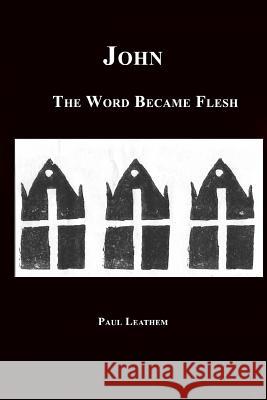John: The Word Became Flesh » książka
John: The Word Became Flesh
ISBN-13: 9781511850384 / Angielski / Miękka / 2015 / 342 str.
The year is 95 AD, and John's Gospel is new. Marcus, a Christian living in Corinth has a copy of the manuscript. He contacts an old friend and fellow teacher living in Athens and invites him to explore the text with him. Marcus proposes to send small portions of the new Gospel along with his explanation by way of a merchant who travels between Corinth and Athens. He asks his friend, Titus, to read the Gospel and react to his commentary. He also asks Titus to assist him in locating some background material which will shed greater light on the meaning of the text. Marcus' purpose is to share the message of the Gospel and bring additional converts to the Christian faith. His friend, Titus, is not a Christian, but agrees to read and study the manuscript. Together, through a series of letters, they explore Jesus' life and message. Moving through the Gospel, passage by passage, they address Jesus' "I am" sayings, his miracles and signs, his encounters with individuals and the ruling elites, his teachings, and his death and resurrection. As they exchange letters, they also address such issues as the meaning of eternal life, the nature of the soul, the work of the Holy Spirit, and John's themes of testimony, glory, water, and light. Because Marcus is a member of the Christian community in Corinth, he is able to draw from Paul's letters to the Corinthians for his explanations. Titus, living in Athens, enlists two of his students, one Jewish and the other Greek, and they provide background information drawn from Old Testament texts and Greek philosophy. They also ask difficult questions, leading Marcus to explain the message of the Gospel and the differences between Christianity, Gnosticism, and Judaism. Together, they all discover the truth of Jesus' message. This commentary is designed to be an engaging and highly readable analysis of John's Gospel. The text is drawn from the New English Bible. John of Zebedee is accepted as the author of the Gospel and his accounts are analyzed as if they were "eye witnessed." The text affirms the divinity and redemptive work of Jesus Christ. The reader will find the theology orthodox and evangelical, but also provocative. The analysis addresses questions unbelievers could have asked at that time and also during the present day. These include the meaning of miracles, the nature of the soul, the coming of the Spirit, and some of the differences between John's account of the events surrounding the crucifixion and those of the Synoptic Gospels. Included is a list of questions for discussion, a list of resources, and extensive endnotes.
Zawartość książki może nie spełniać oczekiwań – reklamacje nie obejmują treści, która mogła nie być redakcyjnie ani merytorycznie opracowana.











